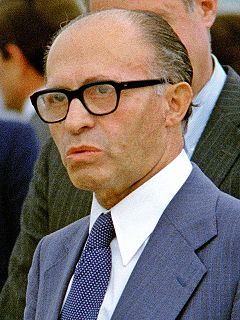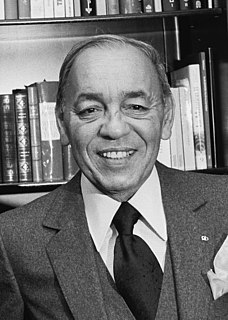A Quote by Vladimir Putin
If we act together along these lines, we will create conditions, the conditions for trust that Shinz? Abe speaks about, so as to take another step and conclude a peace treaty on certain terms. However, first, it is essential to cover this part of the way and then agree on the terms for signing a peace treaty. Both are challenging tasks but they are feasible.
Related Quotes
You recalled the 1956 declaration, and this declaration established the rules that should be followed by both sides and that should be put into the foundation of a peace treaty. If you carefully read the text of this document, you will see that the declaration will take effect after we sign a peace treaty and the two islands [Kunashir and Shikotan] are transferred to Japan. It does not say on what terms they should be transferred and what side will exercise sovereignty over them.
There is progress in the sense that the Prime Minister [Shinz? Abe] has proposed, outlined, as it were, directions for movement toward a peace treaty and the resolution of issues related to territorial problems. Now, what did he propose? He proposed promoting an environment of trust and cooperation. I believe it is even hard to imagine that it can be any different, that we can agree to sign the documents that we are talking about without trusting each other or without cooperation. That is simply impossible even to imagine.
The peace process we all aim for will not necessarily be a result of the mere signing of a treaty or agreement. It must become a matter of our everyday lives, so that peace settles and lasts and becomes supported by everybody. We therefore have to give peace all the required care and preserve it and promote it.
Our agreements on creating the conditions for preparing a peace treaty [with Japan] should be rooted in this trust. This may be achieved, for example, by large-scale economic activities that will also cover the Kuril Islands. It may be achieved by solving purely humanitarian issues, for instance, unhindered visa-free travel by former residents of the Southern Kuril Islands to where they used to live: visiting cemeteries, native places and so on.
Is America becoming decadent? Do we no longer regard our promises and pledges as sacred? ... We promised to make peace with Germany only in conjunction with the Allies; but we brought forward a separate peace, demanding for ourselves all the advantages of the Treaty of Versailles but rejecting all the responsibilities embodied in the Treaty. It was America's President who induced Europe to form a League of Nations; and then America was the first country that refused to joint it.... If these are not the symptoms of national decadency, what are they?
Unless and until we have peace deep within us, we can never hope to have peace in the outer world. You and I create the world by the vibrations that we offer to it. If we can invoke peace and then offer it to somebody else, we will see how peace expands from one to two persons, and gradually to the world at large. Peace will come about in the world from the perfection of individuals. If you have peace, I have peace, he has peace, and she has peace, then automatically universal peace will dawn.
Every time we sign a treaty with another country, the treaty (should) include prisoner transfer provisions.... Under these provisions, the country in which the crimes were committed could demand that the convicts' country of origin incarcerate the prisoners for the terms to which they were sentenced.... Foreign felons in U.S. prisons are exacerbating out budget and law enforcement problems.... We will never get countries to take back their prisoners unless we have some leverage. NAFTA gives us that opportunity.


























